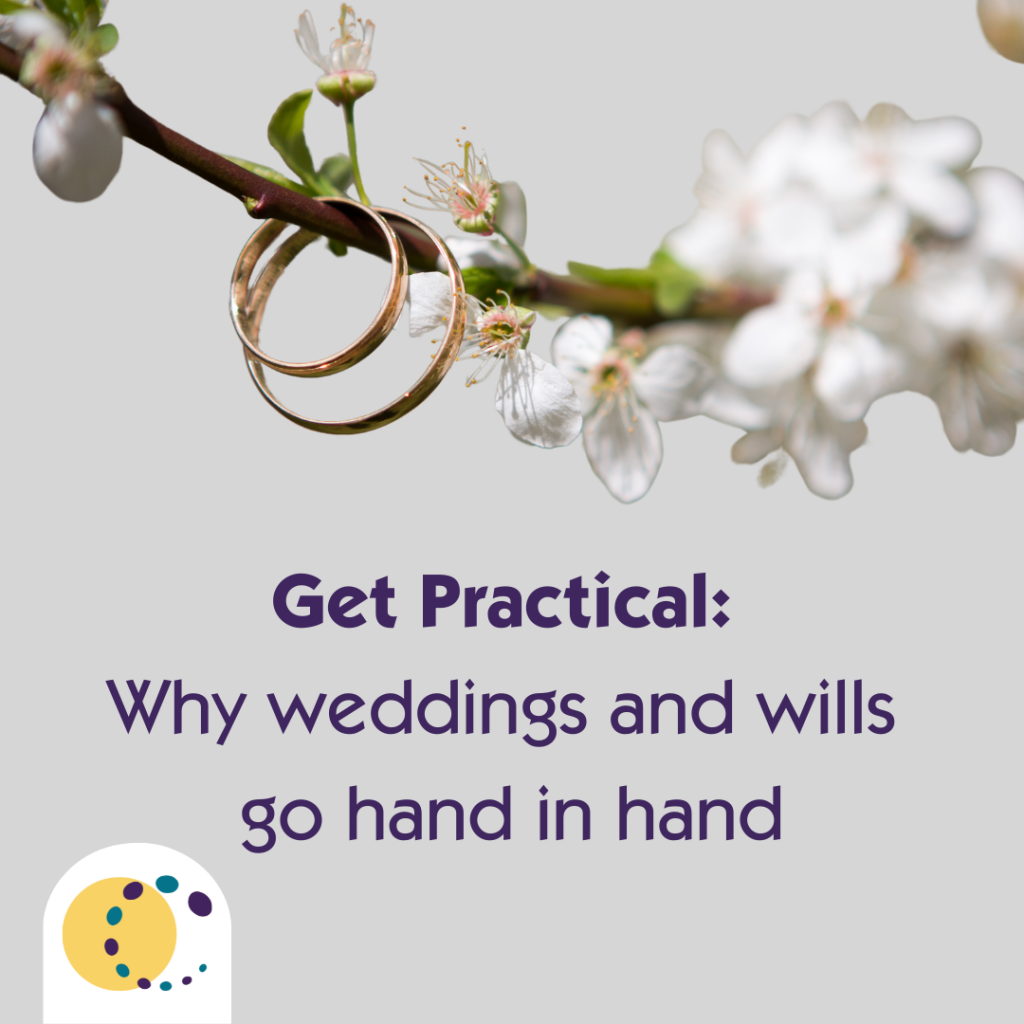When you’re planning a wedding, there are lots of things to think about: dates, venues, the guest list, dresses, a first dance, and that’s just the tip of the iceberg! One thing that often gets overlooked is the need to think about Wills. Here’s why it’s so important to think about your Wills (one for each person) before you get married.
1. As soon as you are legally married or in a civil partnership, your status regarding your possessions changes. It’s slightly different in different countries or states, but basically it’s all change. It means that if you died suddenly, and you have no children then your estate would go to your spouse – eventually. But unless you have this very simple state of affairs, it will not happen as smoothly as it sounds. And it’s a lot easier taken care of if you have a will dictating exactly what you want to have happen. It also costs a lot less in both time and money.
2. If either of you have children from a previous relationship, then a will is crucial, otherwise you may find yourselves in the situation like my colleague’s brother who died suddenly. He had not updated his will, and yet there was one from 15 years previously which was still valid. This meant his estate was divided according to his wishes laid out at that time. Previously he had been married to someone who already had two children from her first marriage. Since then he had divorced, and remarried. The terms of the will resulted in his ex-wife and her children inheriting everything. As you can imagine, this did not sit very well with the new family.
3. If you want children from a previous relationship to be your beneficiaries, or among them, then you need to get a will drawn up after your new wedding that states that, otherwise, according to the laws in your country, they may or may not inherit. You don’t want to risk your children not inheriting, do you?
4. Pensions need to be thought about – who will benefit from them should you die after you have married? It’s only in the most simple of cases (as in point 1) that anything will transfer to your spouse.
5. There may be inheritance tax issues should you die without a will – no-one wants their family to pay more than is necessary in inheritance tax, but not having a will may mean that unintended beneficiaries do indeed benefit.
If you, or anyone else you know, is thinking of getting married (or IS married!) and don’t have a will, then use this as a nudge to take action.
And if you do have a will, but you’re not sure it’s up to date, then the same applies.
Finally, if you notice your heart sinking and your body contracting at the thought of wills (that’s if you’ve managed to read this far!) then take this as a signal to address your thoughts and beliefs.
We’ve already talked about one option you have, Will Writers, in this newsletter. Next time we’ll hear from a solicitor. Whichever route you choose to go down is up to you, but don’t keep putting it off!





 Dad and his Lack of a Funeral Plan
Dad and his Lack of a Funeral Plan  The Briefing: Options for Celebrating a Life
The Briefing: Options for Celebrating a Life  MyGoodbyes Let’s Talk Death: Evie King
MyGoodbyes Let’s Talk Death: Evie King  Loneliness is more dangerous than smoking 15 cigarettes a day. But a wave and nod can help.
Loneliness is more dangerous than smoking 15 cigarettes a day. But a wave and nod can help.  Kathryn Mannix: Why we should talk about death
Kathryn Mannix: Why we should talk about death  When Conflict Arises During End of Life Planning
When Conflict Arises During End of Life Planning  A MGB host can be the life (and death) of the party
A MGB host can be the life (and death) of the party  The Importance of End-of-life Planning in September
The Importance of End-of-life Planning in September  MyGoodbyes’ TV Review: Pushing Daisies
MyGoodbyes’ TV Review: Pushing Daisies